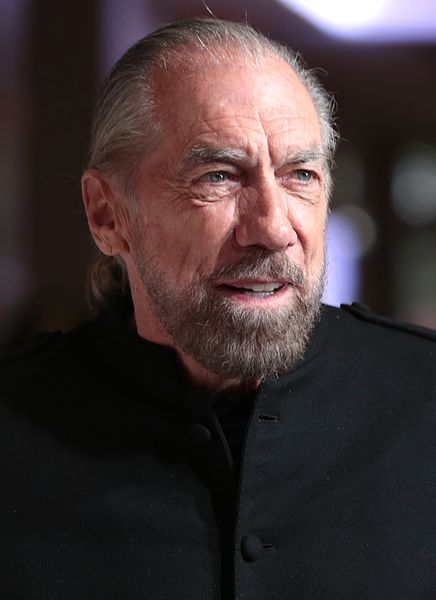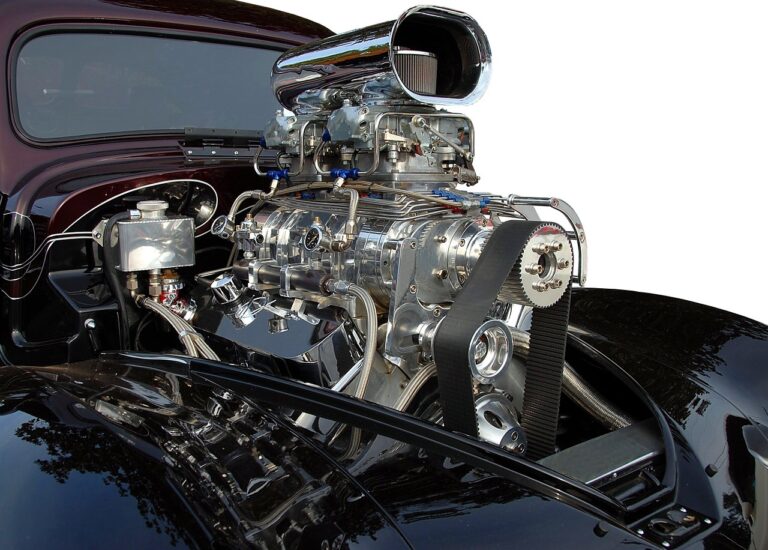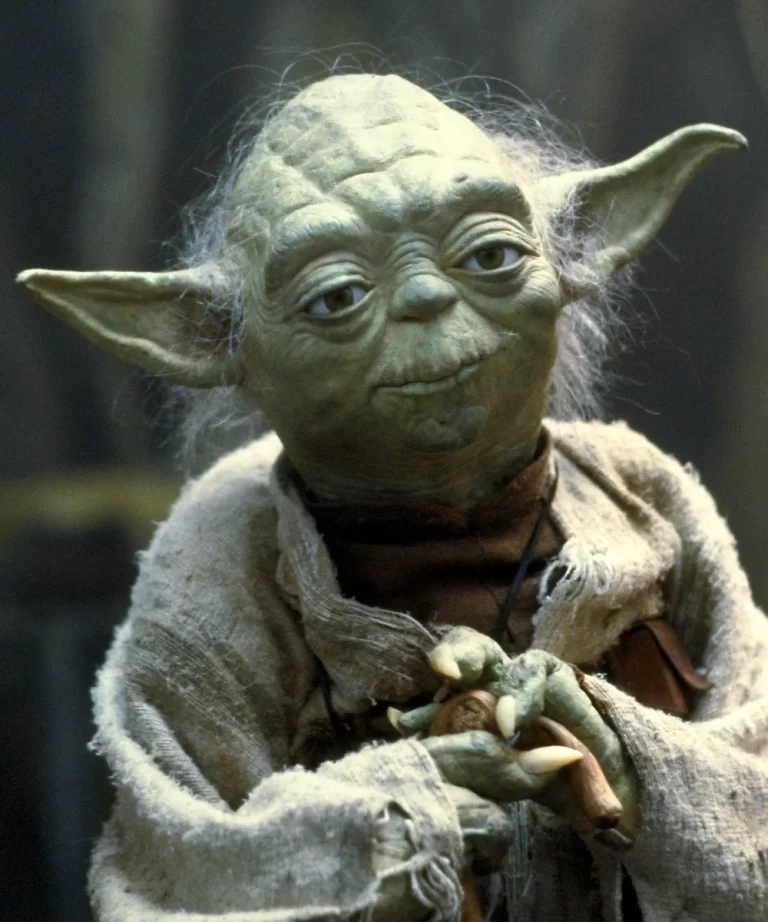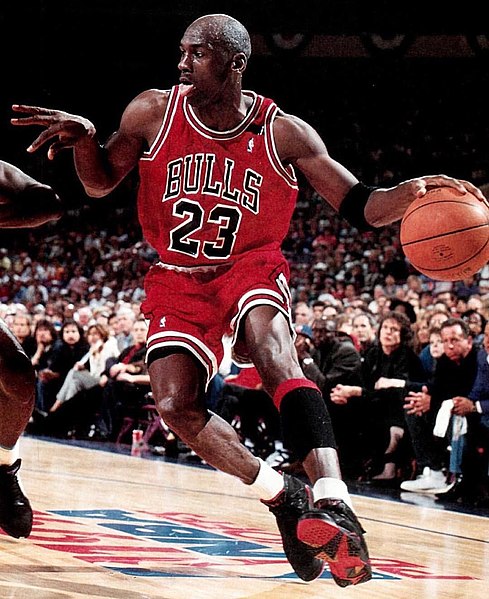Unlocking Leadership Excellence: Lessons and Stories from Pep Guardiola
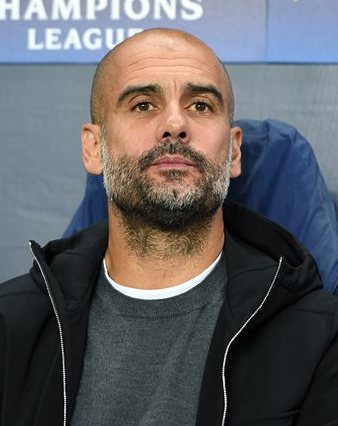
Pep Guardiola: A Journey of Leadership Excellence
In the pursuit of excellence, leadership stands as a formidable force that can inspire and guide individuals and teams to achieve their full potential. Throughout history, there have been exceptional leaders who have left an indelible mark on their fields, and one such visionary leader is Pep Guardiola. With an illustrious career spanning both his time as a player and a coach, Guardiola has emerged as a beacon of inspiration, reshaping the landscape of modern football through his unwavering commitment to innovation, tactical acumen, and a profound understanding of human potential.
Although Guardiola is widely recognized for his extraordinary achievements on the football pitch, it is his ability to mold and lead teams that truly sets him apart. With over two decades of experience as a player and coach, Guardiola has amassed a wealth of knowledge, insights, and wisdom, establishing himself as a thought leader in the realm of leadership development. Behind his remarkable successes lie invaluable lessons and captivating stories that can illuminate the path towards effective leadership in any domain.
This long-form article seeks to uncover the leadership lessons and stories woven into Guardiola’s illustrious career. By delving into the various stages of his journey, from his early years as a player to his transformation into a world-renowned coach, we aim to extract the essence of his leadership philosophy. Guardiola’s experiences provide a profound understanding of how leaders can forge high-performing teams, navigate challenges with adaptability and resilience, and cultivate the emotional intelligence necessary for effective player management.
To embark on this exploration, we will first delve into the foundations of Guardiola’s leadership by examining his formative years, including the influences that shaped his approach. We will then trace his coaching journey, exploring pivotal moments and key milestones that propelled him towards greatness. Through an in-depth analysis of Guardiola’s leadership style, we will uncover his strategies for building high-performing teams, his tactical innovations, and his remarkable ability to adapt to changing circumstances.
Furthermore, this article will delve into the less visible aspects of Guardiola’s leadership, such as his emotional intelligence and player management skills. We will uncover how he establishes deep connections with his players, fosters trust, and effectively communicates his vision, all while managing conflicts and navigating high-pressure situations.
To truly grasp the magnitude of Guardiola’s leadership prowess, we will examine both his triumphs and setbacks. By analyzing his successes, we can extract valuable insights into the attributes that contribute to sustained excellence. Similarly, by exploring his failures and how he rebounded from them, we can glean lessons in resilience, adaptability, and the power of a growth mindset.
Beyond the realm of football, Guardiola’s influence extends to the broader landscape of leadership. By examining his lasting legacy and the impact he has had on the footballing world, we can draw parallels and translate his leadership principles into various professional and personal contexts. Guardiola’s journey serves as a reservoir of wisdom that can guide aspiring leaders, shedding light on the qualities, strategies, and mindsets necessary for exceptional leadership.
As we embark on this immersive exploration of Pep Guardiola’s leadership journey, let us be inspired by his remarkable story, learn from his invaluable experiences, and unlock the key lessons that can empower us to become exceptional leaders in our own right. Together, we will delve into the fascinating world of Guardiola’s leadership, unearthing the insights that have shaped him into an extraordinary figure and illuminate the path towards unlocking leadership excellence.
The Early Years: Foundations of Leadership
Background and Early Experiences of Pep Guardiola
To understand Pep Guardiola’s journey as a leader, we must delve into his early years and the experiences that shaped his leadership foundation. Born on January 18, 1971, in Santpedor, Catalonia, Guardiola grew up in an environment deeply rooted in football. His father, Valenti Guardiola, was a bricklayer and a passionate amateur footballer, instilling in Pep a love for the game from a young age.
Guardiola’s own journey as a player began when he joined FC Barcelona’s youth academy, La Masia, at the age of 13. Under the guidance of the legendary Dutch footballer Johan Cruyff, who was the coach of Barcelona’s senior team at the time, Guardiola was exposed to Cruyff’s revolutionary footballing philosophy known as “Total Football.” Cruyff’s influence on Guardiola would prove to be pivotal in shaping his leadership style and approach.
Influence of Johan Cruyff on Guardiola’s Leadership Philosophy
Johan Cruyff’s impact on Guardiola extended far beyond the football pitch. Cruyff not only emphasized technical skills but also placed a strong emphasis on intelligent decision-making, creativity, and team unity. These principles resonated deeply with Guardiola and laid the groundwork for his future leadership philosophy.
Under Cruyff’s tutelage, Guardiola witnessed firsthand the transformative power of a visionary leader who not only crafted a distinct playing style but also fostered a culture of excellence and innovation. Cruyff’s ability to create a cohesive unit, where each player understood their role and contributed to the collective success, left an indelible mark on Guardiola’s psyche.
Lessons from Guardiola’s Time as a Player and Captain
Guardiola’s playing career exemplified his commitment to excellence and his ability to lead by example. As a deep-lying midfielder, he possessed exceptional vision, technical proficiency, and a deep understanding of the game. Guardiola’s intelligence and tactical acumen allowed him to orchestrate the flow of play, dictate the tempo, and make crucial decisions on the field.
During his time as a player, Guardiola honed his leadership skills through his actions and interactions with teammates. His relentless work ethic, discipline, and dedication set him apart as a role model. He demonstrated an unwavering commitment to self-improvement and demanded the same level of dedication from those around him.
Guardiola’s captaincy at FC Barcelona further solidified his leadership credentials. As the on-field leader, he exemplified the values and principles ingrained in the club’s DNA. His ability to inspire, motivate, and unite his teammates was instrumental in Barcelona’s success during that period.
From his playing career, Guardiola gleaned invaluable lessons in team dynamics, tactical awareness, and the importance of leading by example. These formative experiences would serve as the bedrock upon which he would build his leadership prowess in the years to come.
As we reflect on Guardiola’s early years, it becomes evident that his upbringing, exposure to Cruyff’s philosophy, and his experiences as a player and captain laid a strong foundation for his future leadership journey. In the next sections, we will explore how Guardiola transitioned from player to coach and the profound impact he had on the world of football through his unique approach to leadership.
The Coaching Journey Begins
Guardiola’s Transition from Player to Coach
After concluding his illustrious playing career, Pep Guardiola embarked on a new chapter as a coach. It was during this transition that he faced the challenge of channeling his wealth of experience and knowledge into guiding and inspiring others. Guardiola’s deep understanding of the game, coupled with his leadership acumen, made him a natural fit for the role.
Guardiola’s coaching journey began in 2007 when he was appointed as the head coach of FC Barcelona B, the reserve team of his beloved club. This opportunity allowed him to gain practical experience and develop his coaching philosophy. Despite being at the helm of the reserve team, Guardiola’s impact was undeniable, as he instilled the same playing style and principles he had imbibed from his time as a player under Johan Cruyff.
Early Coaching Experiences and Lessons Learned
Guardiola’s ascent continued when he was appointed as the first-team coach of FC Barcelona in 2008. At just 37 years old, he faced the immense pressure of leading one of the world’s most prestigious clubs. However, it was his unwavering belief in his footballing philosophy and his ability to effectively communicate and implement his ideas that set him apart.
Under Guardiola’s guidance, Barcelona experienced an unprecedented era of success, winning numerous domestic and international titles. His team played an aesthetically pleasing style of football known as “tiki-taka,” characterized by intricate passing, positional play, and relentless pressing. This style not only brought victories but also captivated the footballing world with its beauty and effectiveness.
Creation of a Clear Vision and Philosophy
Central to Guardiola’s success as a coach is his unwavering commitment to a clear vision and philosophy. Guardiola firmly believed that a team’s playing style and tactical approach should be derived from a set of core principles. At Barcelona, he emphasized the importance of possession, quick passing, and collective movement, all aimed at breaking down opponents and dominating matches.
Guardiola’s philosophy extended beyond tactics; it encompassed a holistic approach to the game and the development of players as individuals. He prioritized technical proficiency, intelligence, and a deep understanding of the game. Guardiola believed that by empowering players with the necessary skills and knowledge, they could make intelligent decisions and execute the team’s strategy effectively.
Moreover, Guardiola’s leadership philosophy revolved around fostering a culture of excellence, where every player understood their role and contributed to the team’s success. He placed great emphasis on the collective, rather than individual brilliance, encouraging teamwork, selflessness, and a strong work ethic. By creating a cohesive unit that functioned as a well-oiled machine, Guardiola harnessed the full potential of his teams.
As Guardiola’s coaching journey progressed, he continued to refine and adapt his philosophy based on the players at his disposal and the challenges presented by different opponents and competitions. This adaptability showcased his versatility as a leader and demonstrated his ability to tailor his approach to maximize performance.
Guardiola’s transition from player to coach allowed him to merge his deep knowledge of the game with his innate leadership abilities. His early experiences taught him the importance of creating a clear vision, instilling a comprehensive philosophy, and empowering individuals to contribute to the collective success. These lessons would form the cornerstone of his leadership style as he ventured into uncharted territory and sought to revolutionize the world of football coaching.
In the next sections, we will explore how Guardiola’s leadership extends beyond tactical innovations, focusing on his remarkable ability to build high-performing teams and create a culture of excellence.
Building High-Performing Teams
Importance of Team Culture and Values
Pep Guardiola’s leadership journey is intertwined with his exceptional ability to build high-performing teams. Central to his success is his unwavering focus on creating a strong team culture and instilling core values within the group. Guardiola understands that a cohesive and unified team can achieve extraordinary feats.
Guardiola places great emphasis on fostering an environment where players share a common purpose and align their values with those of the team. He believes that a strong team culture not only enhances on-field performance but also cultivates a sense of camaraderie, trust, and resilience. By establishing a collective identity, Guardiola empowers his players to make sacrifices for the greater good, putting the team’s objectives above personal achievements.
Guardiola’s Emphasis on Player Development and Individual Growth
While building a high-performing team, Guardiola recognizes the importance of individual player development and growth. He understands that nurturing talent and unlocking each player’s potential are key to sustained success. Guardiola invests time and effort into understanding his players’ strengths, weaknesses, and aspirations, tailoring his coaching methods to their specific needs.
Guardiola’s commitment to player development extends beyond technical and tactical aspects. He encourages continuous learning and intellectual curiosity, urging his players to expand their footballing knowledge and think critically on and off the field. By empowering players to become well-rounded individuals, Guardiola equips them with the tools to contribute fully to the team’s success.
Strategies for Fostering Team Cohesion and Collaboration
To foster team cohesion and collaboration, Guardiola employs a range of strategies that bring players together and forge strong bonds. He emphasizes the importance of open and honest communication, encouraging players to express their thoughts and ideas freely. Guardiola fosters an environment where players feel safe to challenge one another constructively, promoting healthy competition and collective growth.
Guardiola also recognizes the significance of shared experiences outside of the football pitch. He organizes team-building activities, bonding sessions, and retreats to strengthen the interpersonal connections within the team. By creating a sense of belonging and togetherness, Guardiola forges a resilient unit that can overcome adversity and thrive in high-pressure situations.
Moreover, Guardiola leverages his leadership influence to establish clear roles and responsibilities within the team. Each player understands their contribution and how it aligns with the team’s overall objectives. This clarity eliminates ambiguity, fosters a sense of accountability, and enables players to perform at their best.
Through his emphasis on team culture, player development, and fostering cohesion, Guardiola has consistently built high-performing teams that achieve remarkable success. His approach transcends football and provides valuable insights for leaders in any domain. By cultivating a strong team culture, nurturing individual growth, and promoting collaboration, leaders can harness the collective potential of their teams and propel them towards excellence.
In the upcoming sections, we will explore Pep Guardiola’s tactical innovations and his remarkable ability to adapt his leadership approach to different contexts, further unraveling the intricacies of his leadership style.
Tactical Innovations and Adaptive Leadership
Guardiola’s Tactical Flexibility and Ability to Adapt to Different Contexts
Pep Guardiola is renowned for his tactical innovations and his ability to adapt his approach to different contexts. He understands that no two opponents or situations are the same, and thus, he continually evolves his tactics to exploit weaknesses and capitalize on strengths.
Guardiola’s tactical flexibility allows him to employ different formations, strategies, and playing styles based on the specific demands of each game. Whether it’s the possession-oriented “tiki-taka” style that he perfected at Barcelona or the pressing and counter-attacking approach he adopted at Bayern Munich and Manchester City, Guardiola tailors his tactics to optimize his team’s chances of success.
Moreover, Guardiola’s adaptive leadership style enables him to make timely adjustments during matches. He possesses a keen eye for the game and an ability to read the flow of play, identifying opportunities and threats in real-time. His capacity to make astute substitutions, modify tactics, and alter player positions demonstrates his acumen as a strategic thinker and his willingness to take calculated risks.
Lessons in Strategic Planning and Game Management
Guardiola’s approach to strategic planning and game management provides valuable lessons for leaders in any domain. He meticulously studies opponents, analyzing their strengths, weaknesses, and patterns of play. This research allows him to develop a comprehensive game plan that maximizes his team’s chances of success.
Guardiola’s attention to detail extends to the training ground, where he fine-tunes his team’s tactics, refines their skills, and prepares them for various scenarios. He understands the importance of preparation in creating a competitive advantage and mitigating risks.
During matches, Guardiola’s ability to make decisive and calculated decisions is exemplary. He demonstrates composure under pressure, maintaining a clear focus on the desired outcome while adapting his tactics to address the evolving dynamics of the game. Guardiola’s strategic thinking and game management skills have propelled his teams to victories in crucial moments.
Balancing Innovation and Consistency in Leadership
Guardiola’s leadership style strikes a delicate balance between innovation and consistency. While he constantly seeks new tactical approaches and embraces innovative ideas, he also ensures that his teams remain rooted in a core set of principles and values. This balance enables him to foster creativity and adaptability while providing a stable foundation for his players.
Guardiola’s emphasis on consistency is reflected in his relentless pursuit of excellence. He sets high standards and demands unwavering commitment from his players. By maintaining a consistent level of performance, Guardiola’s teams develop a winning mentality and establish a reputation for excellence.
Simultaneously, Guardiola encourages innovation and creativity within his teams. He challenges his players to think differently, take risks, and experiment with new ideas. This approach empowers individuals to bring their unique skills and perspectives to the team, fostering a culture of continuous improvement and innovation.
The ability to balance innovation and consistency is a hallmark of Guardiola’s leadership, and it serves as a valuable lesson for leaders across various industries. By encouraging a culture of innovation while staying true to core values and principles, leaders can navigate uncertainty and drive their teams towards sustained success.
As we delve deeper into Pep Guardiola’s leadership journey, we will explore his profound understanding of emotional intelligence and player management. The upcoming sections will shed light on how Guardiola establishes deep connections with his players, effectively communicates his vision, and navigates the intricacies of managing conflicts and high-pressure situations.
Emotional Intelligence and Player Management
Guardiola’s Approach to Understanding and Connecting with Players
Pep Guardiola’s exceptional leadership extends beyond tactical innovations. A key aspect of his approach lies in his profound understanding of emotional intelligence and his ability to connect with his players on a deeper level. Guardiola recognizes that building strong relationships and establishing trust are critical foundations for effective player management.
Guardiola invests time and effort in getting to know his players individually. He understands their motivations, fears, and aspirations, and tailors his interactions accordingly. By demonstrating genuine care and empathy, Guardiola creates an environment where players feel valued and understood, fostering a sense of belonging and commitment to the team’s goals.
Furthermore, Guardiola’s ability to communicate effectively allows him to convey his vision and expectations clearly. He listens attentively, encourages open dialogue, and ensures that each player’s voice is heard. This inclusive approach empowers players to contribute their ideas, fostering a collaborative and engaged team dynamic.
Effective Communication and Building Trust
Guardiola recognizes that effective communication is the lifeblood of strong relationships and team cohesion. He emphasizes the importance of clear and open lines of communication within his team, fostering an environment where players feel comfortable expressing themselves and seeking feedback.
In addition to verbal communication, Guardiola utilizes non-verbal cues to connect with his players. His body language, facial expressions, and gestures convey messages of support, encouragement, and reassurance. This non-verbal communication serves to strengthen the bond between the coach and the players, promoting trust and a shared sense of purpose.
Guardiola’s transparency and honesty in his communication are vital in building trust within the team. He acknowledges and addresses challenges openly, providing constructive feedback and guidance to help players improve. By establishing a culture of trust, Guardiola creates an environment where players feel safe to take risks, learn from mistakes, and grow both individually and collectively.
Managing Conflicts and Handling Pressure Situations
As a leader, Guardiola is no stranger to conflicts and high-pressure situations. However, his adeptness at managing these challenges sets him apart. He approaches conflicts with a focus on finding constructive solutions rather than assigning blame. Guardiola encourages open dialogue and facilitates conversations to resolve differences, ensuring that the team remains united and focused on their common goals.
In high-pressure situations, Guardiola’s calm demeanor and composed presence have a reassuring effect on his players. He instills confidence through his unwavering belief in their abilities, empowering them to perform at their best when it matters most. Guardiola’s ability to navigate and alleviate pressure fosters a resilient mindset within the team, allowing them to thrive under challenging circumstances.
Guardiola’s approach to emotional intelligence and player management exemplifies the power of understanding, empathy, and effective communication in leadership. By forging strong connections, building trust, and managing conflicts with finesse, leaders can cultivate an environment where individuals feel valued, motivated, and capable of achieving greatness.
As we move towards the latter part of this article, we will delve into the pivotal moments in Guardiola’s career, exploring the leadership lessons derived from his triumphs and setbacks. By analyzing his experiences, we can uncover invaluable insights into resilience, adaptability, and the growth mindset that have propelled Guardiola to sustained excellence.
Leadership Lessons from Success and Failure
Guardiola’s Triumphs and their Leadership Insights
Pep Guardiola’s career is adorned with numerous triumphs, and each success carries valuable leadership lessons. Through an analysis of his achievements, we can glean insights into the attributes and strategies that contribute to sustained excellence.
One of Guardiola’s most notable triumphs came during his tenure at FC Barcelona. Under his leadership, the team achieved unprecedented success, including three consecutive La Liga titles and two UEFA Champions League titles. Guardiola’s ability to create a cohesive and dominant team stemmed from his emphasis on a clear playing philosophy, nurturing individual talent, and fostering a strong team culture.
From this period, leaders can learn the importance of establishing a clear vision and core values, aligning individual strengths with team objectives, and cultivating an environment that promotes collaboration and excellence. Guardiola’s success at Barcelona serves as a testament to the power of a well-defined leadership approach and a united team.
Another triumph in Guardiola’s coaching career was his time at Bayern Munich. During his tenure, Bayern won three consecutive Bundesliga titles, showcasing Guardiola’s ability to adapt his leadership style to a different league and context. The lesson here lies in his capacity to blend innovation with a solid foundation, incorporating the strengths of the existing team while introducing new ideas to drive continuous improvement.
Analysis of How Guardiola Coped with Setbacks and Learned from Failures
Guardiola’s journey has not been without setbacks and failures, and it is in these moments that leaders can gain valuable insights into resilience, adaptability, and the growth mindset. For instance, during his first season at Manchester City, Guardiola faced challenges and finished the campaign without any silverware—a rarity in his career.
However, Guardiola’s response to this setback was remarkable. Instead of dwelling on the disappointment, he analyzed the team’s weaknesses, reevaluated his tactics, and focused on improvement. In the subsequent seasons, Manchester City went on to win consecutive Premier League titles, breaking records along the way.
This response to failure exemplifies Guardiola’s growth mindset. He embraces setbacks as opportunities for learning and growth, constantly seeking ways to improve and evolve. Leaders can draw inspiration from this approach, understanding that failures are not the end but rather stepping stones to success.
Moreover, Guardiola’s ability to adapt his tactics and strategies in the face of adversity is another valuable lesson. When faced with challenges such as injuries to key players or tactical puzzles posed by opponents, Guardiola’s willingness to adjust his approach showcases his adaptability as a leader. This flexibility allows him to find alternative solutions and maximize his team’s performance even in the most challenging circumstances.
Resilience and the Power of a Growth Mindset
Throughout his career, Guardiola’s resilience and unwavering belief in his methods have been pivotal. He remains committed to his principles, even in the face of criticism or doubt. Guardiola’s resilience sends a powerful message to leaders that staying true to one’s vision, even during turbulent times, can lead to long-term success.
Guardiola’s growth mindset, characterized by a continuous pursuit of improvement and a willingness to learn, is equally significant. By nurturing a growth mindset within himself and his teams, Guardiola fosters a culture of continuous development, innovation, and resilience. This mindset encourages individuals to embrace challenges, persevere through setbacks, and harness their full potential.
Leaders can draw inspiration from Guardiola’s journey, embracing resilience and the growth mindset as critical components of their own leadership journeys. The ability to adapt, learn from failures, and maintain a steadfast belief in one’s vision can pave the way for sustained success and impactful leadership.
As we approach the final sections of this article, we will explore the enduring legacy of Pep Guardiola and the influence he has had on the footballing world. We will also delve into how his leadership principles extend beyond the football field, providing valuable insights for leaders in diverse domains.
Legacy and Beyond
Guardiola’s Influence on the Footballing World and his Coaching Tree
Pep Guardiola’s impact on the footballing world is profound and far-reaching. His innovative tactics, emphasis on possession-based play, and commitment to excellence have revolutionized the way the game is played and perceived. Guardiola’s success at FC Barcelona and subsequent achievements with Bayern Munich and Manchester City have cemented his status as one of the greatest football coaches of all time.
Furthermore, Guardiola’s influence can be seen in the development of a coaching tree, with many of his former players and assistants going on to become successful coaches themselves. This coaching tree serves as a testament to Guardiola’s ability to inspire and empower others, nurturing a new generation of leaders who carry forward his principles and philosophy.
The impact of Guardiola’s coaching tree is evident in the footballing landscape, with numerous teams adopting aspects of his playing style and tactical approach. Guardiola’s legacy is not limited to the trophies he has won but extends to the lasting influence he has had on the game itself.
Extending Guardiola’s Leadership Principles beyond the Football Field
While Guardiola’s influence is deeply rooted in football, his leadership principles extend beyond the confines of the sport. The lessons garnered from his journey are applicable to leaders across various domains who seek to unlock their own leadership excellence.
-
Vision and Philosophy: Guardiola’s emphasis on developing a clear vision and a comprehensive philosophy can be translated to any organization or field. By defining core values, establishing a collective purpose, and aligning individual efforts with overarching objectives, leaders can inspire and guide their teams towards success.
-
Team Building and Culture: Guardiola’s focus on building high-performing teams and fostering a strong team culture is universally relevant. Creating an environment of trust, collaboration, and shared values enhances productivity, boosts morale, and drives collective success.
-
Emotional Intelligence and Communication: Guardiola’s approach to understanding and connecting with individuals, effective communication, and building trust serves as a blueprint for leaders in any domain. By developing emotional intelligence, listening actively, and fostering open and honest dialogue, leaders can build strong relationships and enhance team dynamics.
-
Adaptability and Resilience: Guardiola’s ability to adapt his tactics, embrace failure as a learning opportunity, and maintain a growth mindset resonates with leaders in dynamic and ever-changing environments. Leaders who exhibit adaptability, resilience, and a commitment to continuous improvement can navigate uncertainty and drive sustainable success.
-
Innovation and Strategic Thinking: Guardiola’s tactical innovations and strategic planning highlight the importance of innovation and forward-thinking. Leaders who embrace creativity, encourage innovative thinking, and approach challenges with strategic foresight can gain a competitive edge and propel their organizations to new heights.
Guardiola’s leadership principles transcend football, offering valuable insights and guidance to leaders across industries. By applying his principles, leaders can unlock the full potential of their teams, cultivate a culture of excellence, and navigate the complexities of leadership in the modern world.
As we approach the conclusion of this article, let us reflect on the remarkable journey of Pep Guardiola, a leader whose impact reaches beyond the boundaries of the football field. Through his triumphs, failures, and unwavering commitment to his principles, Guardiola has established himself as an exemplar of leadership excellence, inspiring individuals to embrace innovation, nurture talent, and strive for greatness in their own leadership journeys.
Guided by Guardiola: Inspiring Leadership Beyond the Game
As we reach the conclusion of this exploration into the leadership lessons and stories of Pep Guardiola, it becomes clear that his journey is one of profound significance and immense inspiration. Guardiola’s evolution from a player to a visionary coach has left an indelible mark on the world of football and leadership development. Through his successes, failures, and unwavering commitment to his principles, Guardiola has emerged as a true thought leader and a beacon of excellence.
From his early years as a player, influenced by the teachings of Johan Cruyff, to his transformative coaching career, Guardiola’s leadership style has been shaped by foundational principles such as clear vision, team culture, and player development. He has showcased the power of emotional intelligence, effective communication, and the ability to manage conflicts and pressure situations with grace and composure.
Guardiola’s tactical innovations, strategic planning, and adaptive leadership have set new benchmarks in the footballing world. His ability to balance innovation with consistency, and to adapt to different contexts, demonstrates his versatility and visionary mindset. These qualities have enabled him to build high-performing teams and inspire a coaching tree that perpetuates his legacy.
Beyond the realm of football, Guardiola’s leadership principles resonate with leaders in diverse domains. His focus on vision, team building, emotional intelligence, adaptability, and innovation can guide leaders to unlock their own leadership excellence. By applying these lessons, leaders can cultivate a culture of excellence, nurture individual growth, and propel their teams towards sustained success.
The legacy of Pep Guardiola extends far beyond the trophies and accolades he has amassed. It lies in his ability to influence the game and inspire others to strive for greatness. His impact will continue to be felt as leaders across the world draw upon his wisdom and apply his principles to their own leadership journeys.
As we conclude this article, let us reflect on the transformative power of leadership. The lessons and stories of Pep Guardiola serve as a testament to the immense influence that a visionary leader can have on individuals, teams, and entire industries. Let us be inspired by Guardiola’s unwavering commitment to excellence, his adaptability in the face of challenges, and his relentless pursuit of innovation.
May the leadership lessons and stories of Pep Guardiola inspire us to become exceptional leaders, guiding and empowering those around us to reach their full potential. Let us embrace the qualities of vision, culture, emotional intelligence, adaptability, and innovation as we embark on our own journeys towards unlocking leadership excellence. Just as Guardiola has transformed the game of football, we too have the power to leave a lasting impact on the world through our leadership.
